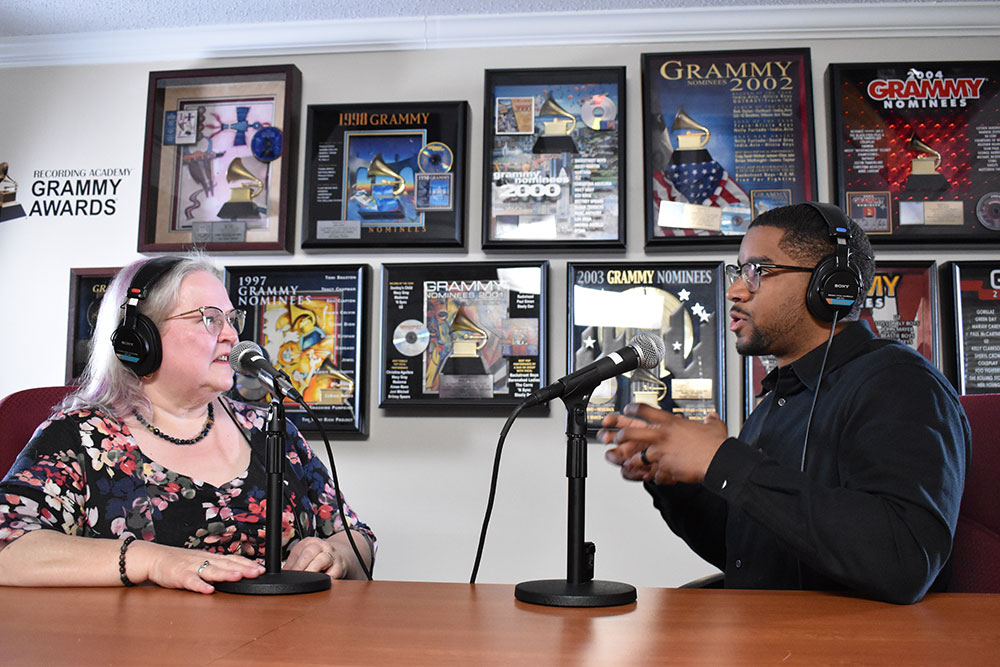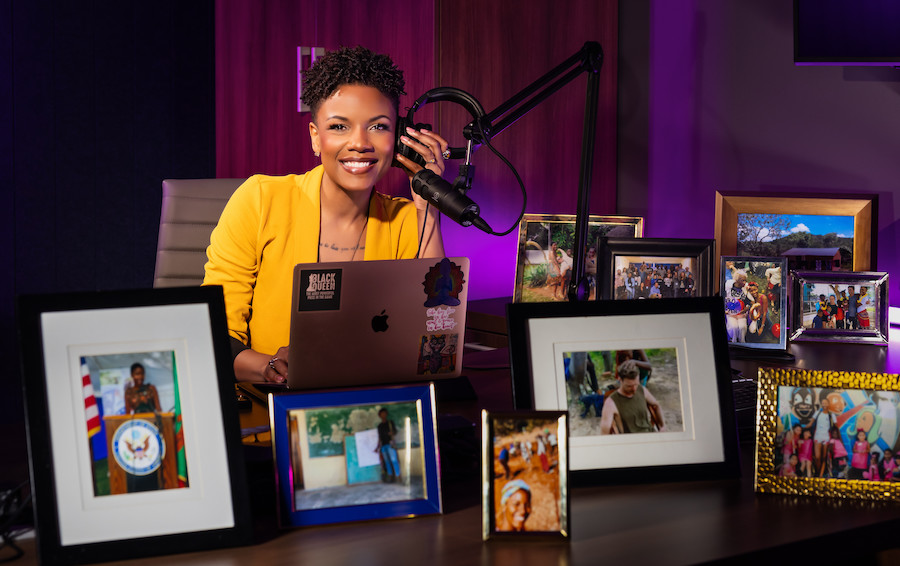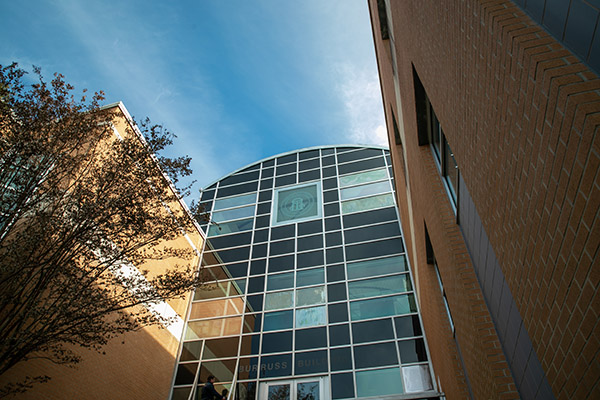
ISA Major Fights Poverty with Digital Literacy
KENNESAW, Ga. | Nov 30, 2017
Education – especially on how to use digital technology – is the best tool for raising children out of poverty, says Kennesaw State junior Veaceslav Cretu.
Cretu, an information security and assurance major through the Michael J. Coles College of Business, is the CEO of DigiKidz, a social enterprise that teaches computer literacy to underprivileged students in his home country of Moldova. On Nov. 17, Cretu visited Emory University to share DigiKidz’s success story at Know Your Goals, a panel discussion on achieving the United Nations’ 17 Global Sustainable Development Goals.
Founded in 2016, DigiKidz holds weeklong summer sessions where rural Moldovan high school students learn to code using the Python and Java programming languages. They also study internet safety, cyberbullying, artificial intelligence, and other issues relevant in the digital age. So far, 20 students have completed the DigiKidz program.
The DigiKidz story began when Cretu was a public school student in the small Moldovan village of Zimbreni, where he saw firsthand the need to improve the quality of education through technology.

Veaceslav Cretu speaking at the UN Youth Summit
“We had outdated computers and teachers in need of proper training,” he says. “The schools there don’t have the proper funding to sustain their administrative costs.”
Without adequate technology resources, it is difficult for Moldovan public school students to succeed in the digital economy. “Only those that can afford private schools get the benefits [of access to technology,]” Cretu says. “Education shouldn’t be a luxury. It’s a public good.”
Hoping to be closer to global technology innovation, Cretu traveled to the United States to earn his college degree. He studied for two years at Chattahoochee Technical College before transferring to Kennesaw State in 2016. Despite moving to the U.S., he never lost his desire to improve the lives of students in Moldova.
His chance came in 2015 when he learned about the Microsoft Challenge for Change, a global competition asking students to develop ways to use Microsoft technology to make a social impact. Cretu and his sister drafted a proposal for a program to provide computers, software, and training to underprivileged Moldovan students. Although Cretu’s project was one of 15 semi-finalists out of 2,100 entries, it did not win the competition.
Cretu, however, was not discouraged.
“If Microsoft thought this idea was a good one, then I knew it had value,” he says.
Through his participation with the United Nations Youth Assembly, he learned about a program called the Resolution Project, which encourages college students to develop social ventures promoting humanitarian goals. He applied for and received the Resolution Fellowship, which included funding to make DigiKidz a reality.

DigiKidz
The first class of DigiKidz students attended the inaugural workshop in summer 2016. Each of the 20 students has since gone on to higher education, with many of them earning scholarships. Several students have also become digital ambassadors for the program.
“DigiKidz is like Wi-Fi – it connects you to what you need,” wrote DigiKidz student Vasiliţa Irina in an online testimonial. “It has given me a sense of purpose and professional direction.”
DigiKidz’s success has given Cretu a platform to address the global need for quality public education. The United Nations invited Cretu to discuss education policy at Youth Summits in 2016 and 2017. In November 2016, he presented at the World Bank Youth Group Summit in Washington, D.C. That same year, the Huffington Post asked him to write a blog about the challenges facing access to education.

Cretu Hosting a TEDx Talk at KSU on Education Policy
One of Cretu’s proudest moments was in January 2017 when the UN published their first-ever Youth Solution Report, which listed DigiKidz among 50 youth-led projects making a difference in their communities.
“I became the first youth from the Republic of Moldova recognized for social responsibility by the UN,” he says. “When you have a corrupt government, regardless of where your country goes, you still have to promote student participation and youth engagement. I want to benefit my school and promote global diplomacy.”
Cretu also dedicates time to improving conditions for his fellow students at Kennesaw State. This fall he became a member of the Coles College of Business Student Advisory Board, which meets regularly with Dean Kathy Schwaig to discuss relevant issues such as identifying ways to encourage more Coles students to volunteer with local on- and off-campus organizations.
“Veaceslav is an impressive young man with a passion to make a tangible impact,” Schwaig says. “I’m glad he is at KSU and Coles College.”
After graduation, Cretu plans to earn a graduate degree in information security and ultimately develop online security systems. As an aspiring technology professional, he understands all too well the importance of ensuring that young people are computer literate.
As for the future of DigiKidz, Cretu says he and his sister are exploring ways to make sure they can make the program sustainable, including offering workshops directly at village schools, rather than making students travel across the country. Cretu says they need to find new sources of funding to make this a reality.
“When you invest in education and the funding goes to student development, then students succeed,” he says. “There is no greater long-term return for a society than the investment in human capital.”
- Patrick Harbin
Related Posts

Kennesaw State Partnership Equips Local Entrepreneurs with Tools for Success

Gathering Spot CEO Ryan Wilson on Building a Social Club to Inspire Connections.

Kennesaw State MBA student leveraging degree work for a cause

CEO Magazine Ranks Kennesaw State Executive MBA Top Program in Georgia, No. 11 in the World














